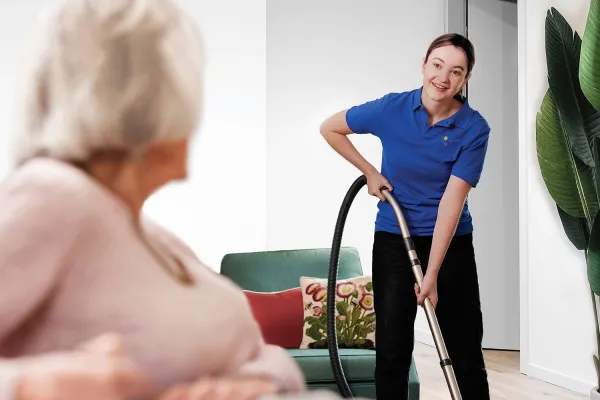9 changes that indicate your loved one may need help at home
You may have noticed some changes with your ageing parent or loved one, and they may not be doing the things they used to enjoy or find easy. They may be avoiding the housework and general home maintenance, and making excuses for not getting this done.
These changes can happen very gradually and may go unnoticed for quite a long time. What might be happening is your loved one can lose their confidence, especially if they have noticed changes in the way they think or if they’ve had any health issues, and they may not want to ask for some support.
Our home care team know how to deal with these changes once they have been identified. Our goal is to help our clients remain at home independently, safely, and with confidence so that they can continue managing their responsibilities and life choices.
Sometimes this means they need a little help and support, and in our experience, we know that the sooner people get the help they need, the better they manage at home for much longer.
Related article: Why I encouraged both my parents to get home care
Helping you decide whether your loved one needs some extra help at home
We support many older people to remain in the comfort of their own homes as they get older. Regardless of ability and capacity, we encourage independence at home and support our clients to continue doing or sometimes relearning or remaining connected to their community to remain independent.
To help you decide whether your loved one may need support at home, we’ve listed some common changes that we have observed over the many decades that we have cared for older South Australians.
- They aren’t feeling as safe at home anymore and want someone around all the time.
- The fridge and pantry have empty shelves and expired food, more so than usual.
- Dressing and personal grooming – they may struggle to cut their own nails, or shower or changes in the way they dress.
- Shopping and putting things away in the pantry or fridge – this task may be a challenge for them.
- Walking upstairs or for a short distance (of 300-400 metres) is difficult.
- Getting up is difficult - from a seated position or in and out of bed.
- Their home is messier than usual because they find doing the housework exhausting.
- Washing clothes and hanging them up to dry – they may be struggling to use the washing machine and the clothesline.
- Preparing meals – they may not be looking after their nutritional needs and be snacking because preparing meals has become too difficult.
Being proactive, understanding their choices, and getting some help at home for them supports a healthy and positive ageing experience and allows them to live at home for longer. It may also prevent anxiety and depression which can happen as people get older and lose their confidence.
Related article: Maintaining mobility and independence – 5 ways your home care package helps you
Phone us to find out more about aged care options for your loved one
Ageing can be a sensitive time for your loved one, and we have worked with many families and individuals to find the right blend of support and services to help them at home. The most important thing is that our clients know that our approach to care is to empower them to continue doing everything they can do, and even to relearn things they may be struggling with.
A home care package is designed with services to suit the needs of your loved one with as much or as little support as they need and want.
We’re also here to help you navigate all the aged care options available, and you can call us at any time at St Louis Home Care Adelaide on 8332 9150, or St Louis Home Care Victor Harbor on 8552 1481.
Want to learn more?
